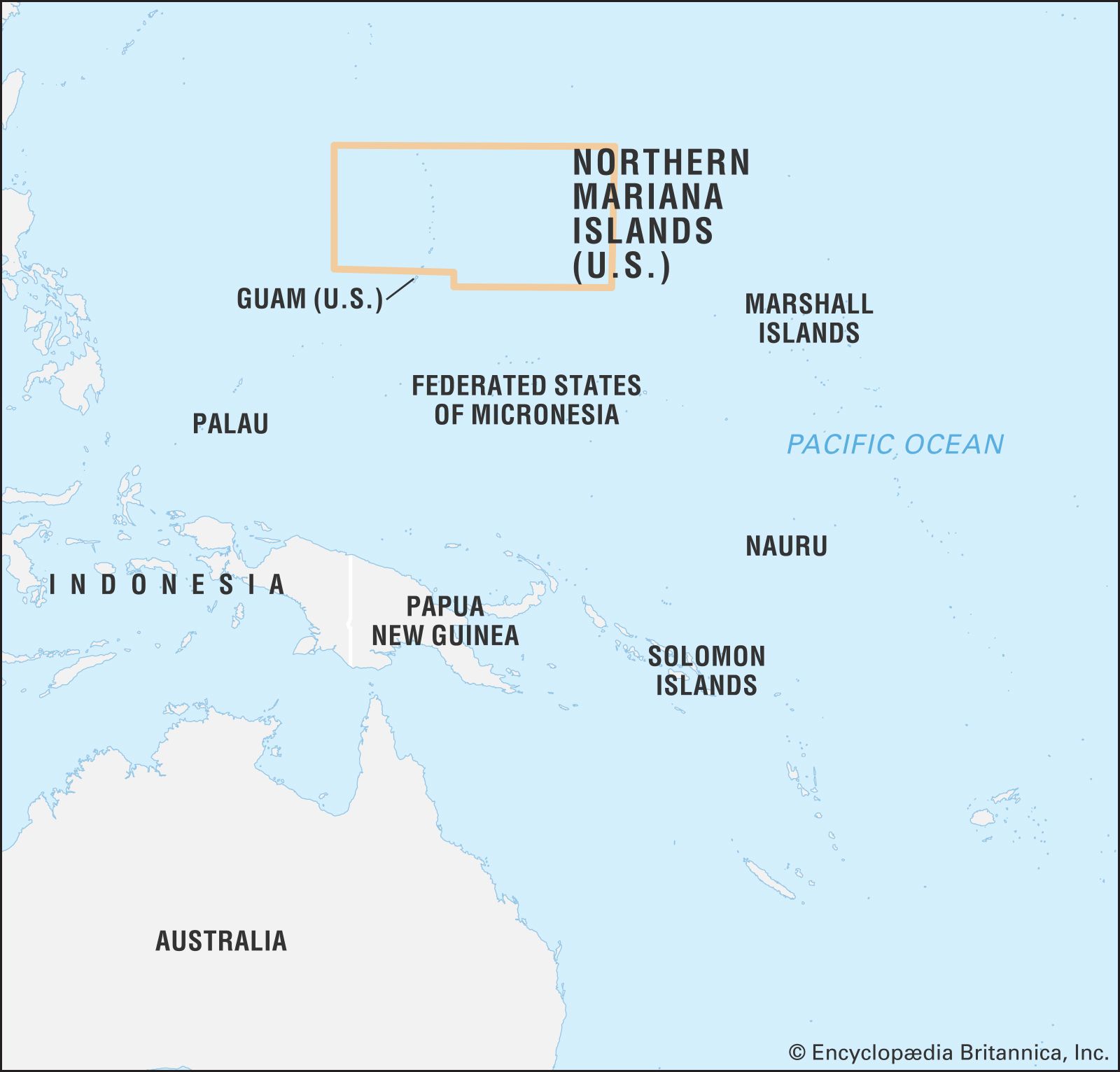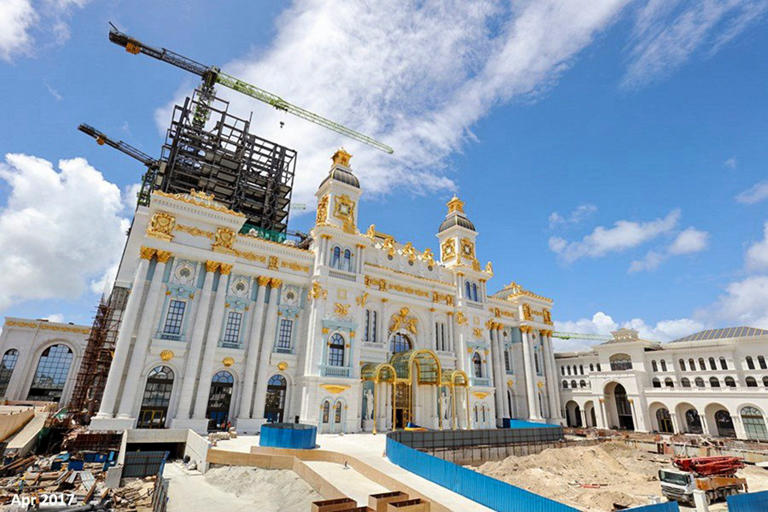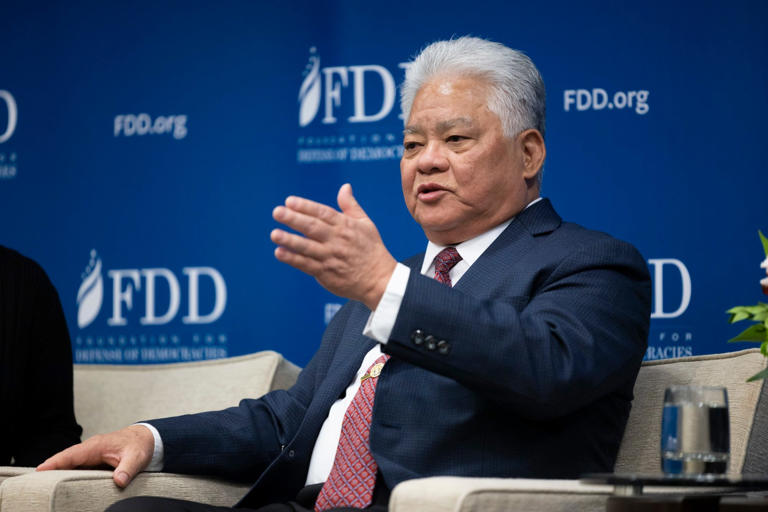The Harsh Reality of a US Territory’s Solo Battle in Turning Away from China

Image: Vị trí của Quần đảo Bắc Mariana trên bản đồ.
The governor of the Northern Mariana Islands, a US territory, recently expressed his sorrow and emphasized the economic difficulties he is trying to address in his homeland. Arnold Palacios made these remarks during a recent visit to Washington, where he advocated for turning away from China. In this article, we will delve into the challenges faced by this US territory and its efforts to reduce its dependence on the world’s second-largest economy.
Turning Away from China
Although the Northern Mariana Islands have a population of less than 50,000 people, they host strategically important US military bases, especially in light of the increasing influence of Beijing in the region. This archipelago is the only US territory that allows Chinese nationals to enter without a visa for up to 14 days. This policy, implemented in 2005, was aimed at promoting tourism.
However, the escalating tensions between the US and China may result in the early termination of the visa waiver program, with stricter entry requirements imposed on Chinese visitors. In alignment with President Joe Biden’s stance on China, Governor Palacios is seeking to reduce the Northern Mariana Islands’ reliance on the world’s second-largest economy.
Despite decades of deep economic ties with China, the efforts to pivot away from Beijing present significant challenges for the territory. The Northern Mariana Islands first established relations with China in 1979 when the US and China established diplomatic relations. Chinese companies subsequently set up garment factories in the islands, bringing in workers and economic activities.
However, after China’s accession to the World Trade Organization (WTO) in 2001, the garment industry in the Northern Mariana Islands collapsed due to China’s preferential tariff treatment. Consequently, the islands shifted their focus to Chinese tourism and related investments, which initially proved to be a panacea for their economy.
Before the COVID-19 pandemic, Chinese tourists accounted for over 40% of total visitors to the Northern Mariana Islands, arriving on multiple direct flights every week and providing much-needed support to the local economy. However, while Chinese tourists are gradually returning to the islands following Beijing’s lifting of travel restrictions, the local government remains determined to seek other sources of visitors.
Governor Palacios has traveled to Taiwan and Japan in search of alternative markets. Yet, his efforts have yet to attract significant numbers of tourists or investments from what he refers to as “regional allies.”
Furthermore, the local government has taken actions against Chinese-backed casinos and hotels, accusing them of abusing the visa waiver policy, non-payment of licensing fees, labor violations, construction delays, and their proximity to US military infrastructure.
Casinos have been major attractions for Chinese tourists, but since 2021, China has tightened its regulations on gambling abroad. Last week, a spokesperson for China’s Ministry of Foreign Affairs warned Chinese citizens to “stay away” from foreign casinos.
These actions have compounded the challenges that Governor Palacios now faces. The government’s treasury is nearly depleted, making it difficult to fully fund administrative activities in the fiscal years 2023 and 2024.
A Solo Battle
Governor Palacios has requested financial support from Washington to increase unemployment benefits, end austerity measures, build critical infrastructure, and include the Northern Mariana Islands on subsidized flight routes to avoid the “harmful influence” from China.
During his recent visit to Washington, Governor Palacios met with officials from the State Department and the Department of Defense. He also delivered a speech at an interagency event organized by the US Department of the Interior.
He argued that the economic and social stability of the Northern Mariana Islands is directly linked to US national security and a free and open Indo-Pacific region.
Highlighting the growing importance of the territory to US regional defense policies, Governor Palacios wrote a letter last year to Admiral John Aquilino, Commander of the US Indo-Pacific Command, requesting financial assistance.
Additionally, the head of the Saipan Port Authority recently approved a “maritime highway” from the Northern Mariana Islands to various Pacific islands, aiming to serve a more useful role for the US military and create a new stable market for economic recovery.
Despite the calls for coordinated action, Washington has yet to provide any substantial aid.
In an interview, Governor Palacios expressed his disappointment, describing the situation as a solo battle. The pressure is relentless, with weekly editorials questioning why he assumed this position if Chinese tourists were to return. The governor cited a case from last year where over 20 Chinese citizens were apprehended for illegally entering Guam via the Northern Mariana Islands.
“These are places where the Andersen Air Force Base is located,” he said, referring to the US military base on Guam. “There’s a reason to be concerned.”
Liu Pengyu, a spokesperson for the Chinese Embassy in Washington, dismissed Governor Palacios’ concerns as “malicious fabrications without any evidence.”
Liu argued that refusing Chinese tourists would also harm US interests, adding that the number of Chinese outbound tourists is expected to reach 130 million by 2024.

Image: Construction progress of the Imperial Pacific Resort, owned by a Hong Kong (China) business, in Saipan, 2017. Photo: Imperial Pacific
The ramifications of this solo battle weigh heavily on Governor Palacios, who is confronted with the near depletion of the government’s coffers. Local lawmakers and business leaders oppose his hardline stance toward China.
Last year, when the Saipan government terminated a land lease agreement with a Macau-based casino business, a local senior official referred to it as a “victim of geopolitical factors”.
The revenue shortfall has also resulted in the inability of the Northern Mariana Islands to fully meet administrative obligations in the fiscal years 2023 and 2024.
Governor Palacios remains steadfast in his belief that the economic and social stability of the Northern Mariana Islands is directly tied to the US and the broader free and open Indo-Pacific region. However, the road ahead is fraught with challenges as he navigates this solo battle.

Image: Governor Arnold Palacios assumed office in January 2023. Photo: Handout
In conclusion, the Northern Mariana Islands’ struggle to turn away from China presents a unique set of economic and political challenges. As Governor Palacios fights this solo battle, the economic stability and security of the US and the broader Indo-Pacific region increasingly depend on the outcome.
For more articles on finance and economics, visit Business Today.
